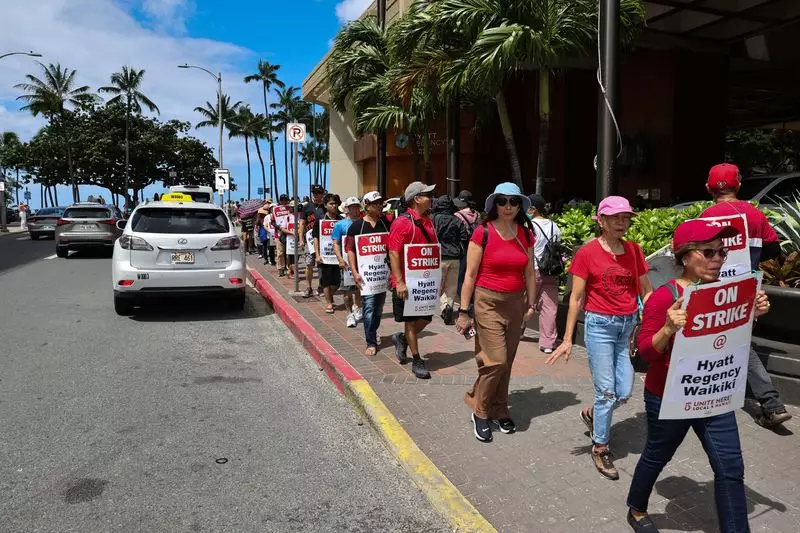As reported by Doyinsola Oladipo and Mrinmay Dey, around 10,000 U.S. hotel workers have initiated a strike across several cities due to failed contract negotiations with major hotel operators such as Marriott International, Hilton Worldwide, and Hyatt Hotels. This strike is taking place in 24 hotels in various travel destinations across the United States, including San Francisco, San Diego, Honolulu, Boston, Seattle, and Greenwich, among others. The union representing these workers, Unite Here, has mentioned the possibility of more workers joining the strike in cities like Baltimore, New Haven, Oakland, and Providence.
The primary concern raised by the union is the issue of workload and inadequate staffing levels. Hotel workers are being pushed to their limits, with management frequently assigning the work of four staff members to just three individuals. This results in increased stress levels and a compromise on the quality of service provided to guests. The union highlighted an instance at Marriott’s Palace Hotel in San Francisco, where a staff member stated, “Since COVID, they’re expecting us to give five-star service with three-star staff.”
In cities like Baltimore and Boston, hotel housekeepers are advocating for substantial wage increases. Workers in Baltimore are aiming to raise their hourly wage from $16.20 to $20, while those in Boston, where housekeepers currently earn $28 per hour, are seeking a $10 per hour raise over the next four years. These demands reflect the financial struggles faced by hotel employees, especially in the wake of the pandemic.
While Unite Here is pushing for better wages and working conditions for its members, hotel operators such as Hilton and Hyatt have reiterated their commitment to negotiating a fair agreement with the union. Hyatt has even put contingency plans in place to minimize the impact of potential strike activities on hotel operations. On the other hand, Marriott has remained silent on the issue, failing to respond to requests for comments on the strike.
The ongoing strike by hotel workers comes at a time when the industry is witnessing a surge in domestic travel during the Labor Day weekend, with a 9% increase compared to the previous year. This disruption caused by the strike could potentially impact the operations and profitability of hotels, especially in major travel destinations where the strike is taking place. With the uncertainty surrounding the duration of the strike and the possibility of more workers joining in, the hotel industry may face challenges in maintaining quality service and meeting guest expectations.
The strike initiated by U.S. hotel workers in response to stalled contract negotiations with major hotel operators raises important questions about the working conditions and wages in the hospitality industry. While the union is advocating for better treatment of its members, hotel operators must also consider the long-term implications of failing to address these concerns. The outcome of this strike will not only impact the lives of thousands of hotel workers but also shape the future of labor relations in the hospitality sector.

